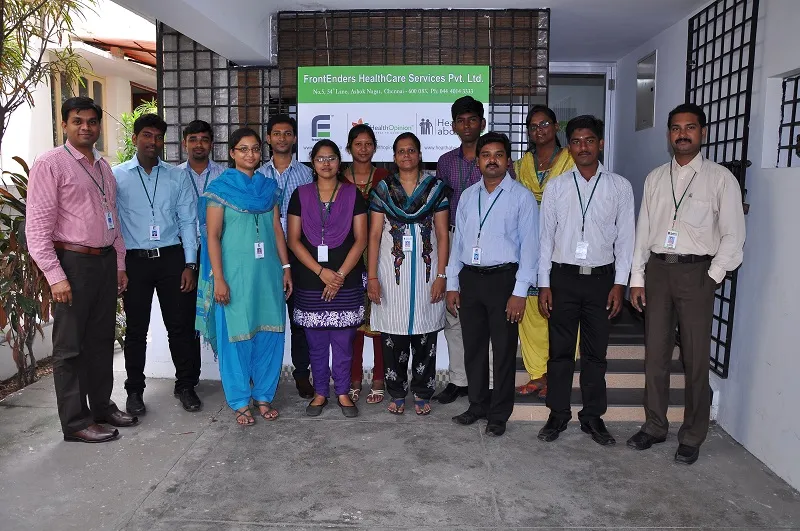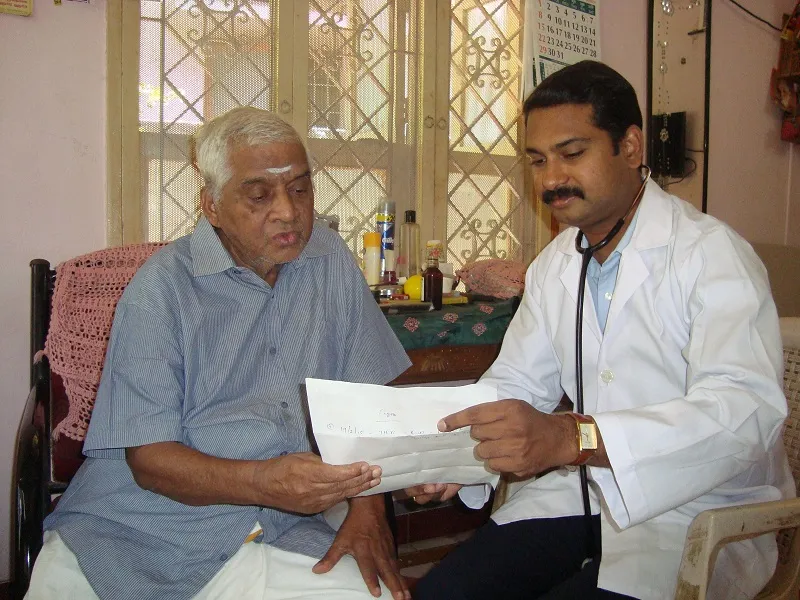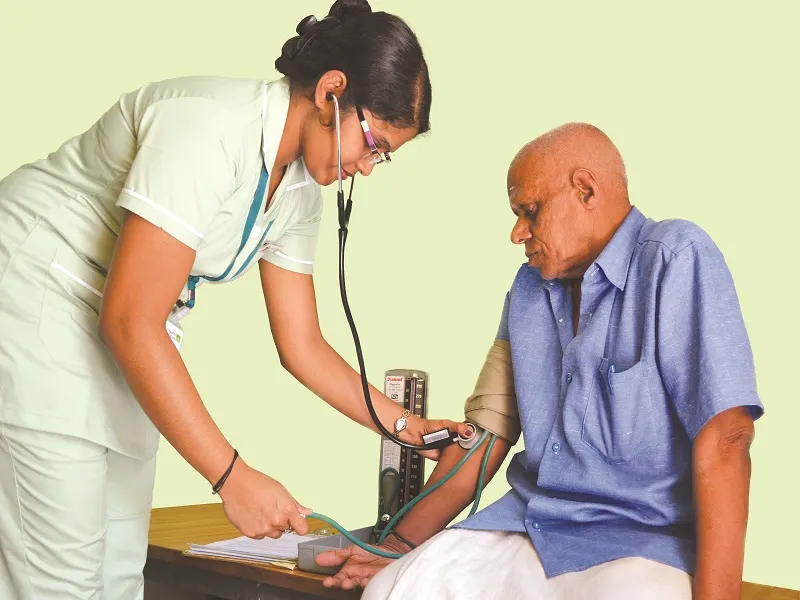HealthAbove60 on redefining ageing in a young India
“My mother-in-law’s treatment was going on for nearly one year,” says Sudha Sitaraman. A diabetic patient, Sudha was forced to take her mother-in-law to the hospital every few months, but those visits never manifested translated into improved health. The doctors simply pumped with her with more antibiotic medication and sent her home. Frustrated with the service at hospitals, she contacted HealthAbove60, a geriatric homecare service, whose advertisements she had seen in a Tamil weekly. “Her mood had become very bad,; she was always tired,” says Sudha. With her husband abroad and children at home, it had become increasingly difficult to manage her mother-in-law’s condition until HealthAbove60 stepped in to provide her the right kind of treatment and services. Sudha now says, “It made my life easy, and she’s definitely better, too, now. She has healed, and she continues to get better and take their advice.”
Millions of other Indians, though, aren’t as fortunate as Sudha’s mother-in-law. Kavya J., the business head of Frontenders, a health service provider, says, “We’re only four years old. Initially, we started off as a consultancy firm in Chennai for hospitals. In the second year of running, we initiated Health Opinion to assist medical tourism and to help Indians connect with the right hospitals and doctors.” Kavya noticed how it had become increasingly difficult for patients to keep up with their routine hospital visits. “The need for homecare,” says Kavya, “was required in the Indian market.” And the area that was the most neglected was geriatric healthcare services.

“Older people are unable to go to hospitals for various reasons,” she says. “They have a lot of negativity when thinking about hostpials. They avoid doctors, because the whole process is really frustrating.” Children leave, families are getting smaller and with an increasing number of women joining the workforce, the aged genuinely need a healthcare services they can rely on. HealthAbove60 was created keeping these socio-cultural issues in mind.

HealthAbove60, in ten months, has over 450 clients for whom it provides personalised medical care. Their services range from providing doctors, nurses, attendants and physiotherapists to medicine delivery, emergency care, blood collection and psychological counselling at home. The core goal is to ensure ageing patients receive quality geriatric care in an industry where it’s importance is secondary.
“The lack of care isn’t because of backwardness. It’s just that hospitals tend to treat an 80-year-old in the same way as a 40-year-old. When you compare it to other countries, the kind of care and attention given to geriatric healthcare patients is completely neglected. In India, they are neglected.”
A part of that neglect may come from the belief that old age is supposed to be difficult, painful and sickening. Whether this is a uniquely Indian mentality, is up for debate. Meanwhile, countries Countries closer to India, like Japan and China, have far better services for their aged citizens. Kavya says, “In my one year of experience, we’ve come across many people who say, ‘Obviously, he’s supposed to have pain.’ It’s a lack of awareness in people that you can be very healthy even when you’re old. They take it too casually and even stop consulting doctors. I feel it’s a perception in India. When I travel abroad, I see 60 and 70-year-old people going about their own lives with confidence. Only in India, we stop our older relatives from doing things.” When healthcare providers take the patients detailed history, what Kavya has also found that a lot of patients tend to self medicate whether they have a medical condition or not. is this penchant for self-medicating, irrespective of whether the patient has a condition or not. This becomes even more difficult when pharmacists are comfortable selling Schedule H drugs over the counter.
However, the biggest challenge for HealthAbove60 is manpower and skill. “We have separate training for geriatric nursing care. It’s not like what you have at hospitals. We’re also learning from other existing places. Though homecare is slowly getting more popular, it’s still hard to convince people that they or a family member might need it.”

One of the reasons why Kavya feels it’s important for people to switch to geriatric homecare services is to ease their financial burdens. Hospitals, by their very nature, tend to be expensive, and they getting more expensive. Because geriatric homecare does not require extremely expensive equipment or medication, it’s cheaper. More importantly, it’s focus is not only on improving health condition, but nipping health issues in the bud and providing emotional support to patients. “The work we do,” says Kavya, “our doctors and nurses need to have an emotional bond with the patient. You’re their there for them throughout the day; you’re not going in to give a health check-up and leave after five minutes. Of course, sometimes they start thinking we’ll also do household duties for them, so we have to remind them we’re sending a person exclusively for medical aspects.”
Before HealthAbove60 expands to other cities in South India, they want to strengthen their base in Chennai. “It’s not that difficult, because there’s nothing legally that you have to abide by except what any other health provider does in terms of policies and regulation. Everything is straightforward.”
The biggest boon of starting HealthAbove60, to Kavya, is the change they see in families. Financial burdens of healthcare ease, the patients are in a better disposition and there’s a renewed confidence with which these families deal with their day-to-day life. As more Indians age, Kavya hopes that increased awareness and education changes the culture of restricting older people to a sofa in the corner of a house. She’d like to see Indians not only take better care of their health, but also not let age come in the way of living a fulfilling life. And nothing exemplifies that more than HealthAbove60’s client, Balakrishnan. At over 70 years of age, his physical condition was extremely poor. His wife, Seethalakshmi, says, “He never used to get out of bed. But ever since we switched to home care, he’s started to walk again because the doctors tell us how to care for him. He doesn’t go out because he’s scared, but every day is an improvement.”







